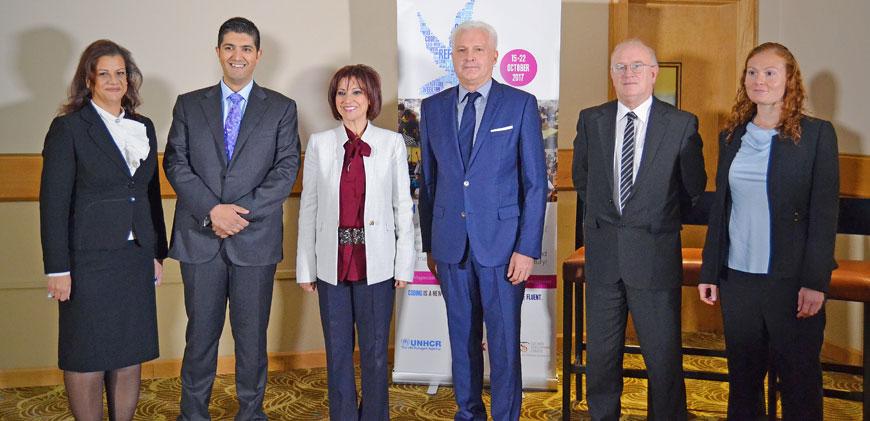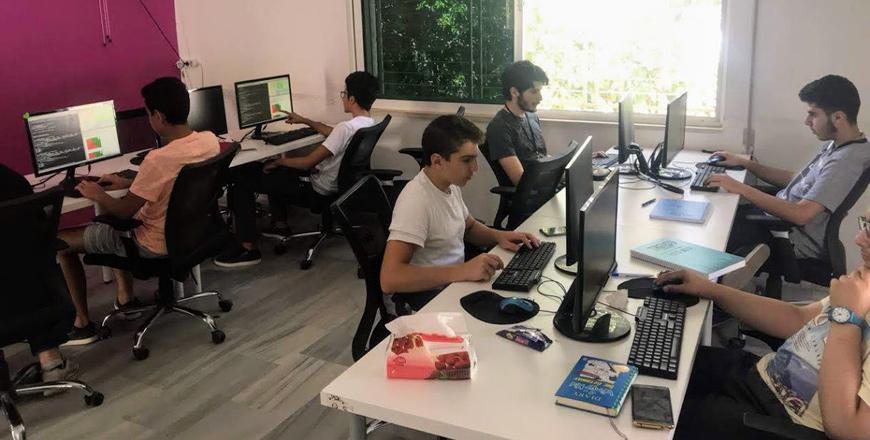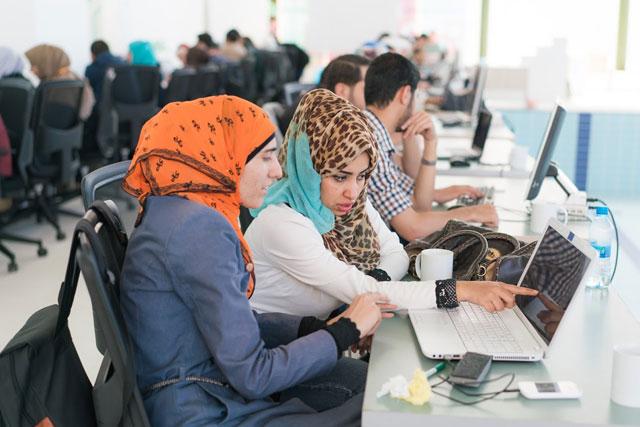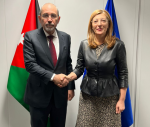You are here
Refugee Code Week builds up next generation's tech skills
By Ana V. Ibáñez Prieto - Jul 23,2018 - Last updated at Jul 23,2018
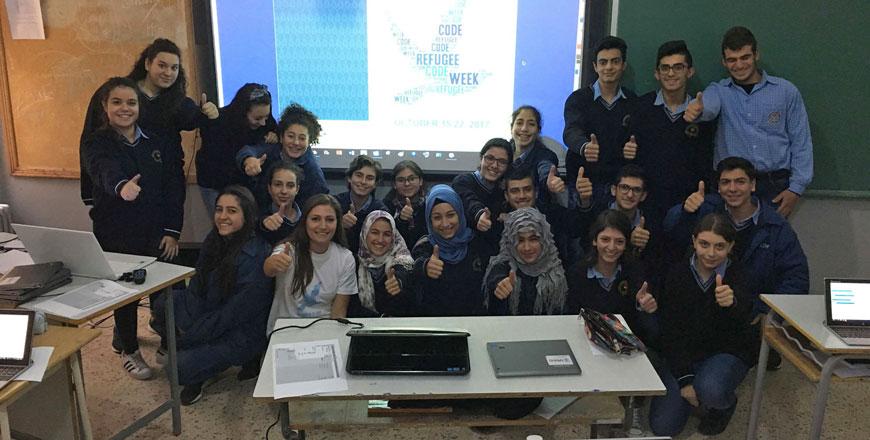
Youth aged eight-24 learn a variety of coding skills through the initiative including Scratch coding and web programming (Photo courtesy of SAP)
AMMAN — “Once I learned Scratch coding and web development, I started having a purpose again, and that restored my faith,” said 23-year-old Syrian refugee Ahmed Rahhal, who became a code trainer at the Zaatari refugee camp after taking lessons during the latest edition of the Refugee Code Week.
“Before the crisis, my goal was to complete my education and specialise in the field of computing, but the war in Syria destroyed my hopes,” he told The Jordan Times, expressing hopes to get more opportunities to learn and improve his skills to be able to “help the people there when it's time to return”.
Soon after the completion of his training at the Refugee Code Week, Rahhal started getting in touch with NGOs and international humanitarian actors to put his skills to the use of his community, finding his first opportunity with a UNHCR project aimed at mapping the camp’s refugee services.
“Most residents at the camp do not know about the distribution of the population and the mobility between the different areas and services,” Rahhal explained, recalling how he started working on a Scratch software project to guide refugees within the camp.
“But coding is about more than the services we can provide, and, with proper training in this field, more education and work opportunities can be open to our next generation,” explained Rahhal, who is now passing his Scratch code skills on to children and teenagers in the camp.
“There is a great response to the courses for all ages, and I believe learning these skills can change their future,” he stressed.
Helping to close the region’s digital-skills gap and to support youth job creation, the Refugee Code Week initiative trained more than 16,000 refugee youth across the Middle East, North Africa and Europe in digital literacy and coding skills. Held under the patronage of Her Majesty Queen Rania, the initiative was organised in partnership with the UN Refugee Agency (UNHCR), the Galway Education Centre, ReBootKamp (RBK) and SAP.
The latest edition took place in October 2017, with over 100 free coding workshops organised in camps, community centres and universities across Egypt, France, Greece, Iraq, Lebanon, Palestine, Jordan, Sweden and Turkey.
During the training, youth aged eight-24 learn a variety of coding skills including scratch coding and web programming, before the top participants advance to a series of 17-week coding sessions with RBK and the Re:coded humanitarian initiative, leading to job placement in the SAP ecosystem.
In addition, top participants can leverage the resources of the One Million Arab Coders initiative, which aims to support one million Arabs in becoming professional software developers with career opportunities, internships, certifications and “nano-degrees”, entrepreneurship accelerators and cash prizes through the programme’s ecosystem.
“As the pace of technological change advances, Middle Eastern countries face a short time frame to support youth in learning the coding skills needed for innovative digital careers,” SAP General Manager for the Middle East Gergi Abboud said, adding that “while youth are digital natives, their skills do not necessarily match business needs, and the Refugee Code Week shows them how to be empowered and inspired to take on high-value digital careers".
For his part, UNHCR Senior Regional Public Information Officer Mohammad Abu Asaker stated “the initiative shows how public, private, and academic organisations can join forces to close the region’s digital skills gap, enable youth development and support refugees’ career preparedness,” pointing out that “coding initiatives can give youth and refugees a purpose in life, enable them to land digital careers, and create economic benefits that can lift up their families and communities”.
Related Articles
AMMAN — The Refugee Code Week on Sunday held the closing ceremony of its 2017 edition, celebrating the training of over 15,000 youth and Syr
AMMAN — At a time when the world looked at machines as the panacea of the future, a local organisation is giving young teenagers the tools t
AMMAN — “We are using technology to create a generation of peacebuilders, to combat extremism, early marriage and terrorism through coding a


